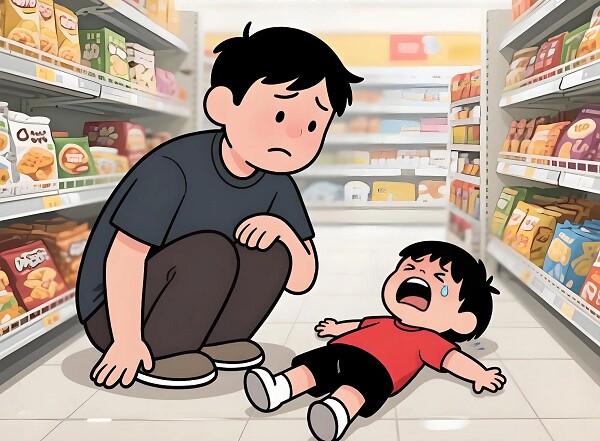The post struck a chord with many readers, as evident from the comments section, where people shared similar experiences and feelings of constantly striving for parental recognition and love.
These stories are more than just personal narratives; they represent a generation’s cry for love and attention. It highlights a concerning trend of individuals deprived of affection during their formative years, a reality that often goes unnoticed by parents.


The roots of an individual’s unhappiness often lie in a loveless family environment.
Numerous psychological studies have emphasized the pivotal role of family in shaping a child’s emotional and psychological development.
Research from the United States reveals that children raised in unloving families are prone to developing psychological issues such as anxiety, depression, and behavioral disorders.
A notable example is the attachment theory proposed by Professor John Bowlby, which asserts that secure attachment to parents or primary caregivers is fundamental to a child’s mental well-being.
When children are deprived of love and acceptance from their parents, they are at risk of developing insecure attachment styles, leading to feelings of loneliness and unworthiness.
Psychologists have also observed that children who experience a lack of love during their early years tend to become people-pleasers, constantly seeking validation from others.
Growing up in a state of anxiety, these children constantly feel inadequate and fear rejection. This not only affects their personal relationships but also impedes their career success.

Four behavioral indicators of a child’s longing for love, often misinterpreted as signs of excellence by parents.
If a child exhibits any of the following behaviors from an early age, it may signify a deeper need for love and attention that parents should address.
Excessive self-discipline
Some children are naturally self-motivated, requiring minimal parental reminders about homework or exhibiting good behavior.
However, this could be a facade, as the child may have learned to disguise their “needs” as “shoulds.” They may feel insecure and believe that only academic excellence and pleasant behavior will earn them their parents’ attention and approval.

Acute observation of others’ expressions
While such children are adept at interpreting others’ expressions and emotions, this skill may also indicate a tendency to prioritize others’ expectations over their own thoughts and feelings.
Perfectionism
These children strive for progress and excellence in all endeavors. However, this drive may stem from a lack of self-confidence and a fear of disappointing their parents. They may become overly competitive, disregarding rules or engaging in unethical behavior to achieve their goals.
Emotional volatility
Some children experience extreme mood swings, exhibiting intense emotions, whether happiness or sadness, more profoundly than their peers. They may rejoice over academic progress one moment and then suddenly collapse into tears over minor issues. This emotional turbulence can be confusing for the child, leading to self-denial or self-blame for their inability to maintain a positive state.

Children with volatile emotions.

Five strategies to heal your child’s emotional wounds and build a loving relationship.
Foster secure attachment: Dedicate 15 minutes daily to put down your phone and fully engage with your child, conveying the message, “You are more important than anything else.”
Respond with empathy and timeliness: Instead of saying, “Stop crying”, try “You’re feeling angry because…” to help your child recognize their emotions and reduce internal denial.
Cultivate daily bonding moments: Prepare breakfast boxes or plan weekend outings to create small happiness moments that foster a sense of security.

Build a secure attachment with your child.
Model vulnerability and ask for their help: For instance, say, “Let’s figure out a solution together”. When children feel needed, it boosts their self-worth.
Keep a journal of their strengths: Writing down one positive trait of your child daily helps them internalize their strengths and combat insecurity.
By loving yourself and your children unconditionally, you create a positive environment for their development. Parental love encompasses not just physical care but also emotional understanding, respect, and support.

































